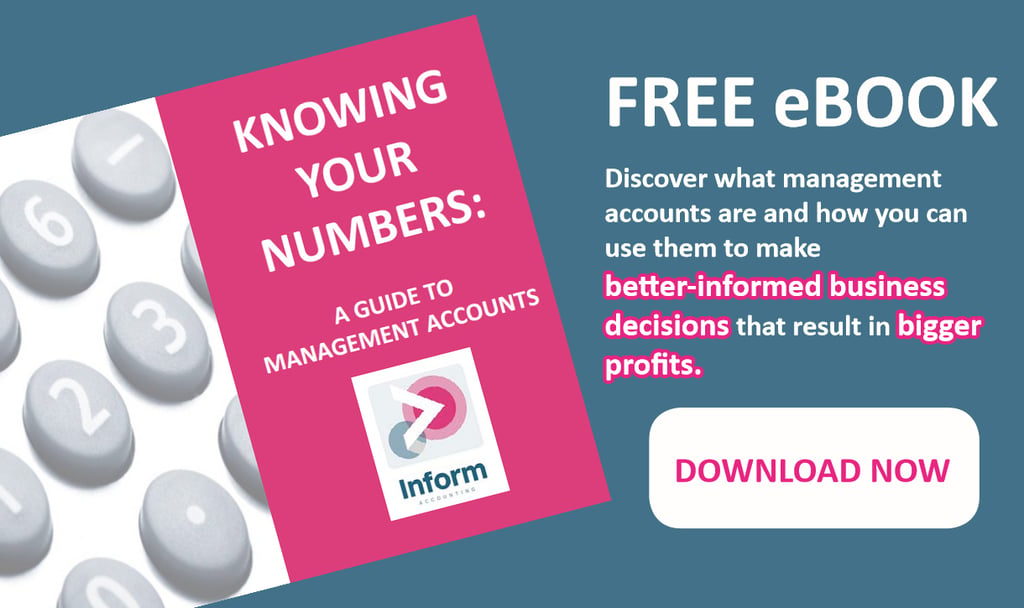BLOG
Why your small business needs Management Accounts

For small business owners, book-keeping and accounting falls under the category of ‘necessary evil’. It’s just a job that has to be done (or most likely outsourced and paid for) to keep the wolves from the door and fulfil your legal obligations. Not all types of accounting are created equal though. And while its true that statutory annual accounts provide little benefit to your business beyond keeping your tax bill down, there’s a new type of accounting in town with BIG benefits for SMEs.
Management accounts are a set of financial statements prepared either monthly or quarterly, providing clear insight into the financial trading position of your business.
They aren’t required by law, and they don’t have to be filed with HMRC - but they’ll put you more in control of your finances than ever before, supporting the growth of your business.
What are management accounts?
Management accounts for small businesses typically include a profit and loss account, balance sheet, cash flow statement and a short report. You can put the accounts together yourself, or more realistically, an accountant can do it for you.
If you’re using an electronic accounting package like Xero, it’s easy to supply the necessary information your accountant will need to produce the management accounts on your behalf.
Why do you need them?
To successfully grow your business, you need to be able to monitor your money and measure your performance throughout the year. That means more than just the occasional glimpse at your bank balance.
Indeed, a healthy bank balance doesn’t necessarily indicate a healthy company. Your cash balance is simply a snapshot in time, and fails to take into account impending outgoings, trading conditions or the state of your sales pipeline.
Management accounts lift the lid on all this information, enabling you to identify month-to-month or quarter-to-quarter trends in your sales, expenses, stock levels and more. This means you can…
• Make more informed decisions based on up-to-date info
Rather than wait until the year end to see your results, you’ll be able to identify adverse operating trends in real-time, and take action to correct the situation.
• Measure performance of your business and individuals
Management accounts provide the basis for reporting key performance indicators. KPI’s are an invaluable tool if reported regularly, and in a timely manner.
• Gain control over your cash
Management accounts let you spot cash-flow problems before they happen, and help you analyse the money going out of your business. Could you cut your outgoings? Are you getting good value from your suppliers? Total business costs are of little value when managing a business - you need to know how and where that money is being spent.
• Plan your tax and dividend payments
With up-to-date information available each month, you can plan tax and dividend transactions with greater confidence. Management accounts for small businesses can help maximise the potential benefits of paying dividends rather than salary.
• Detect fraud in your business
A regular review of your business finances means there’s no place to hide for malpractice. The longer the time between financial reviews, the more chance there is that fraudulent activity could go undetected - at great cost to your business.
These are just some of the benefits of management accounts for small businesses. From reduced accounting costs to lower tax liability and even a better relationship with your bank manager, there are plenty more advantages to discover. For the bigger picture, download our Management Accounts ebook, or give us a call on 0121 667 3882 to find out more.
You may find these blogs of interest too:
Four ways to top up your turnover
Three ways your accountant can help grow your business




.jpg?width=1500&height=1000&name=amy-hirschi-K0c8ko3e6AA-unsplash-(5).jpg)

